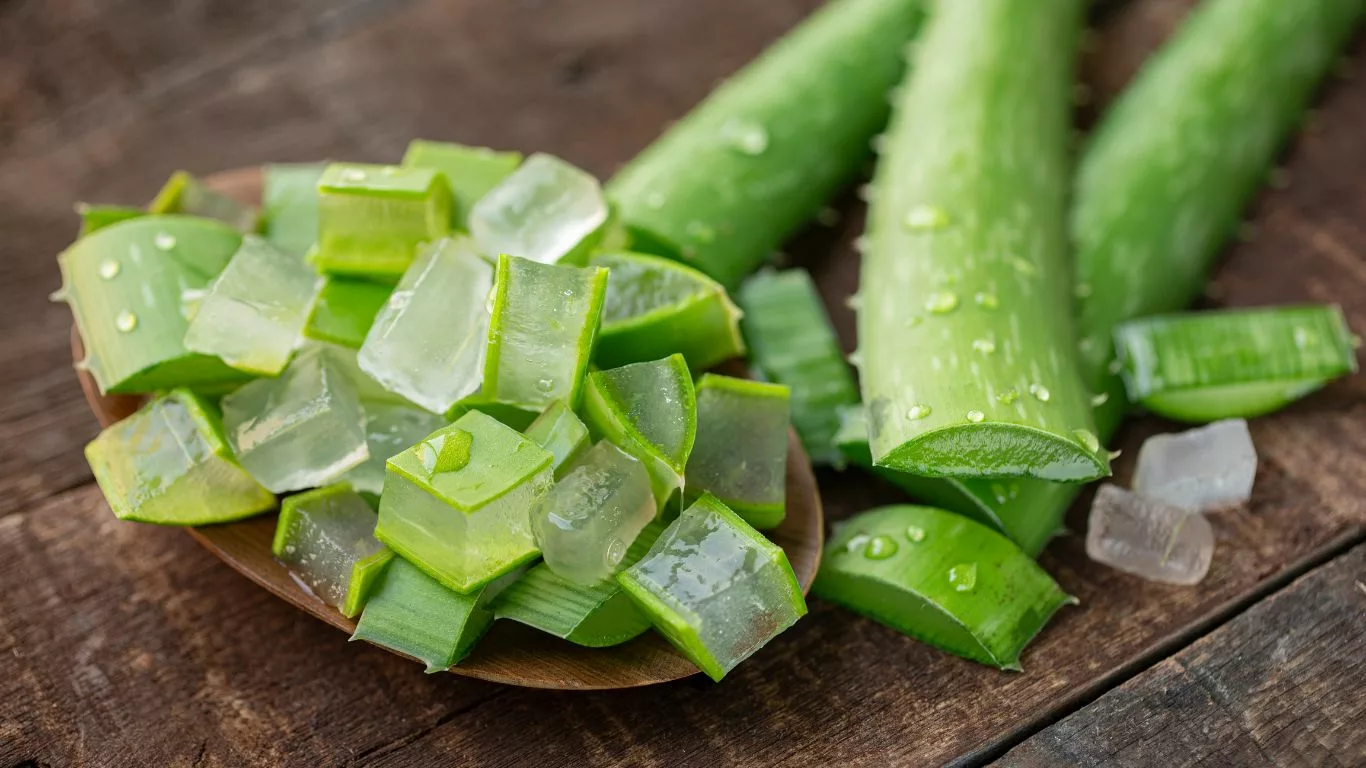Aloe Vera for Acid Reflux Relief That Actually Works
Ever felt that burning sensation after a hearty meal, only to reach for a quick fix that doesn’t really do the trick? I’ve been there more times than I care to admit. Heartburn, that all-too-familiar symptom of acid reflux, used to throw off my entire day—until I stumbled upon aloe vera. Not the skincare kind (though that’s great too), but aloe vera juice. At first, I was skeptical. Aloe? For the stomach? But after some cautious experimentation and a few conversations with a nutritionist friend, it turned into one of the most soothing natural remedies in my GERD toolkit.
Why Aloe Vera Might Be Your Gut’s Best Friend

Aloe vera has been used for centuries in traditional medicine, but in recent years, it’s earned some spotlight for its potential digestive benefits—especially for those of us dealing with acid reflux or GERD (gastroesophageal reflux disease). What makes aloe so interesting isn’t just its soothing nature. It’s also packed with antioxidants, enzymes, and compounds that appear to calm inflammation and irritation in the esophagus and stomach lining.
One study published in the Journal of Traditional Chinese Medicine found aloe vera syrup to be effective in reducing GERD symptoms like heartburn, regurgitation, and nausea—without the side effects common in some over-the-counter medications.
Natural Anti-inflammatory Effects
One of the primary ways aloe vera helps is by reducing inflammation. When stomach acid creeps back into the esophagus, it irritates the lining and causes that dreaded burning feeling. Aloe vera contains bradykinase, an enzyme believed to help reduce inflammation. It also boasts plant sterols and salicylic acid, which act like natural pain relievers.
Coating and Soothing the Esophagus
When I first started sipping aloe vera juice—unsweetened, decolorized, and organic—I noticed it felt like it gently coated my throat and chest. That isn’t just a placebo. The gel-like consistency of aloe creates a light barrier over the esophagus lining, which may shield it from stomach acid, giving the tissue a better chance to heal.
Supporting Digestive Enzymes and Gut Health
Aloe is rich in enzymes like amylase and lipase that help break down sugars and fats, making digestion smoother. This can be especially helpful when combined with other digestive-friendly habits like eating slowly and chewing thoroughly. Plus, aloe supports gut health by acting as a mild prebiotic, fostering good bacteria that support regular digestion.
How to Choose the Right Aloe Vera Product for Reflux Relief

Not all aloe vera is created equal. You’ve got juices, gels, concentrates, and capsules on the market. But when it comes to acid reflux relief, the form matters. I’ve tested a few and learned (the hard way) which ones to avoid.
Go for Decolorized and Purified Juice
Decolorized aloe vera juice has the latex and aloin removed—compounds known to cause digestive upset or even diarrhea in large amounts. You want a product that says “purified” or “filtered” and preferably one that’s been certified for safety. I always opt for organic, food-grade aloe juice without added sugars or artificial flavors.
Liquid Over Gel or Capsules
From my own experience, liquid aloe vera juice seems to be more effective for quick relief. It reaches the esophagus faster and coats it more thoroughly. Capsules may support long-term gut health, but they won’t offer the same instant soothing benefits.
Stick to no more than 1/4 to 1/2 cup per serving, ideally before meals. And always start slow to make sure your system tolerates it well.
Timing Matters
If you’re like me and tend to experience reflux after dinner, try taking aloe juice about 15–20 minutes before eating. It helps prep your digestive tract and minimize acid build-up. Pair it with small, low-fat meals for even better results. Need GERD-safe meal ideas? Check out our GERD Diet Plan guide.
What the Science and Experts Say

According to Mayo Clinic and other clinical sources, while aloe vera shows promise for digestive complaints, not all health claims are fully backed by extensive human trials. However, early studies and user reports (like mine) suggest that incorporating aloe vera can offer symptom relief without the long-term risks of chronic acid suppressants like PPIs.
Some observational studies also point to aloe’s ability to reduce common GERD symptoms such as:
- Heartburn
- Regurgitation
- Nausea
- Belching and bloating
It’s worth noting that lifestyle still plays a major role. Aloe is just one part of the equation. If you’re also dealing with bloating or burping along with reflux, this burping and acid reflux guide might help tie it all together.
Safety, Side Effects, and Who Should Be Cautious

Aloe vera isn’t a one-size-fits-all remedy. While it’s generally well-tolerated, especially in decolorized form, some people might still experience side effects like:
- Mild laxative effects if the product still contains aloin
- Allergic reactions (especially in people allergic to plants in the lily family)
- Lowered blood sugar—so those with diabetes should consult a doctor
If you’re on medication for heart conditions, diabetes, or diuretics, it’s a good idea to speak with your doctor first. Aloe can interact with some medications. And while rare, there are cases of people overusing aloe supplements and running into kidney issues. Moderation is key.
For a comprehensive look at diagnosing and treating acid reflux with professional accuracy, visit our in-depth GERD diagnosis methods guide from our trusted resource pillar.
How to Use Aloe Vera Effectively for GERD Relief

Once I figured out that aloe vera helped soothe my acid reflux, the next challenge was figuring out the best way to use it consistently—without getting bored. I tried mixing it with other reflux-safe ingredients, sipping it before meals, and even blending it into smoothies. Eventually, I found a few methods that not only helped my symptoms but also made aloe vera a part of my regular routine.
1. Sipping It Straight
The simplest method: drink a small amount (about 2 to 4 ounces) of aloe vera juice before meals. Preferably 15–20 minutes before eating. This allows the aloe to line the esophagus and stomach lining, creating a buffer against potential acid splash. I personally avoid it before breakfast though—my stomach’s still waking up.
2. Aloe Smoothies
If the taste of plain aloe juice doesn’t excite you (honestly, it’s not exactly delicious), try blending it into a GERD-friendly smoothie. One of my favorite combos includes aloe juice, ripe banana, steamed oats, and a splash of almond milk. It’s smooth, soothing, and easy on the gut.
3. Herbal Aloe Shots
Sometimes I’ll mix aloe with a little chamomile or ginger tea for a quick reflux-soothing “shot.” Chamomile is gentle and anti-inflammatory, while ginger offers mild pro-digestive effects. Just make sure your tea is caffeine-free and not too strong.
Pairing Aloe with GERD-Safe Lifestyle Habits

As helpful as aloe vera is, it’s not a miracle fix on its own. I learned this firsthand. You still need to be mindful of your overall routine—especially your meals, timing, and posture.
Watch Meal Timing and Size
One of the worst reflux triggers for me used to be large, late dinners. Now I keep dinner light, eat at least 3 hours before bed, and sip aloe before and after if needed. This simple shift, combined with aloe juice, has drastically reduced nighttime reflux episodes.
Elevate Your Head at Night
Gravity matters when it comes to reflux. Elevating the head of your bed or sleeping with a wedge pillow helps prevent acid from creeping up. More on that in our guide to GERD sleep positions.
Avoid Trigger Foods Even if Aloe Helps
Some people think aloe gives them permission to eat spicy food or deep-fried meals again. Trust me—don’t do it. Aloe can help, but it can’t undo the damage from constant triggers. Stick to a low-acid diet, and use aloe as support, not a cure-all.
What to Look for on Aloe Vera Product Labels

After being burned (figuratively) by a poorly labeled aloe drink once, I now read every label with care. Here’s a quick list of what I check before buying:
- No aloin or latex: Look for “decolorized” or “purified” aloe juice to avoid unwanted laxative effects.
- Organic & Food-grade: Certified organic aloe means fewer pesticides, and food-grade ensures it’s safe for consumption.
- No added sugars or citric acid: These additives may worsen reflux, defeating the purpose of drinking aloe.
- Refrigerate after opening: Helps preserve the enzymes and prevents spoilage. Plus, chilled aloe juice feels great on a sore esophagus.
Who Should Avoid Aloe Vera (Or Use With Caution)

Aloe is generally safe when consumed properly, but not everyone should jump in without guidance. Here’s who should be extra cautious:
- Pregnant or breastfeeding women – Aloe’s internal use hasn’t been well-studied in this group.
- People on blood sugar medications – Aloe may slightly lower blood glucose and interact with diabetes drugs.
- Anyone taking diuretics or heart medications – Aloe may interfere with potassium levels and heart rhythm.
- Those with IBS or sensitive digestion – Aloe may trigger loose stools if you’re sensitive.
If you’re already using natural options like slippery elm or licorice root, talk to a professional about combining them with aloe vera. These herbs have overlapping benefits, but too many soothing agents can throw off gut balance.
Common Myths About Aloe Vera and Acid Reflux

Let’s clear up some confusion I’ve seen floating around in forums and wellness circles:
- “All aloe vera juice is the same.” – Definitely not. The source, processing method, and purity level drastically change the effects.
- “Aloe works instantly.” – While it may provide quick relief for some, consistent use is where it really shines.
- “It cures GERD.” – No. Aloe helps manage symptoms, but it’s not a cure. Treat it like you would any supplemental aid—with respect and balance.
- “You can drink as much as you want.” – Please don’t. Overdoing aloe can lead to electrolyte imbalances and digestive distress.
Real People, Real Relief: What Others Say

I’m definitely not the only one who’s experienced success with aloe vera. In online GERD communities, aloe vera juice regularly comes up as a favorite non-pharma remedy. One user shared how they replaced their evening antacid with a small shot of aloe and noticed better sleep within a week. Another said it helped ease the “throat burn” that no antacid could touch.
That said, some folks reported it did nothing or caused bloating—proof that your results may vary. But when it works, it works beautifully.
Combining Aloe Vera with Other Natural Approaches

Aloe vera pairs well with other holistic strategies that support long-term digestive health. Here are a few worth trying together:
- Herbal teas like chamomile, marshmallow root, or ginger
- Breathing and stress-reducing practices like yoga or diaphragmatic breathing
- Lifestyle modifications like weight management, posture awareness, and smaller meals
To learn more about long-term strategies that actually work, explore our full guide on natural remedies for GERD—a curated pillar of science-backed tips and soothing options.

Camellia Wulansari is a dedicated Medical Assistant at a local clinic and a passionate health writer at Healthusias.com. With years of hands-on experience in patient care and a deep interest in preventive medicine, she bridges the gap between clinical knowledge and accessible health information. Camellia specializes in writing about digestive health, chronic conditions like GERD and hypertension, respiratory issues, and autoimmune diseases, aiming to empower readers with practical, easy-to-understand insights. When she’s not assisting patients or writing, you’ll find her enjoying quiet mornings with coffee and a medical journal in hand—or jamming to her favorite metal band, Lamb of God.







